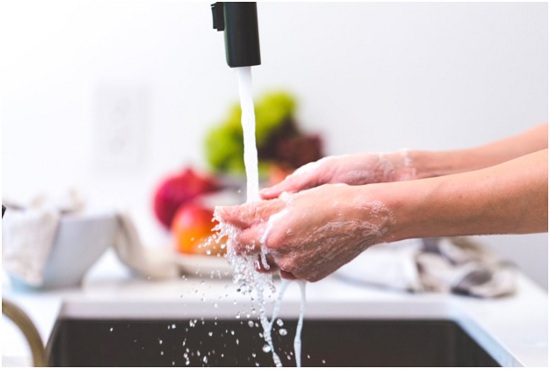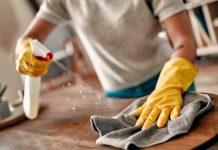If you’re concerned about rising water bills or the scarcity of water in your area, it’s time to think about how much water you use in the kitchen. There are plenty of ways to conserve water, from easy changes you can start making today to larger-scale efforts that may require an investment upfront. By conserving water in the kitchen, you can lower your utility bill and help reduce your environmental footprint. Here are five simple ways for getting started:


Do not let the faucet water run needlessly
Did you know that up to 12 percent of your home’s water usage is due to a running kitchen faucet? That can add up to a lot of wasted water-especially during busy times when multitasking in the kitchen might have you running the faucet needlessly. Do not let the faucet run needlessly. Conserve water in the kitchen by turning off the tap while washing dishes, preparing food, and rinsing produce.
Add an aerator to your kitchen faucet
A faucet aerator is an inexpensive attachment that connects to the end of a faucet to add air to water flowing out, creating a bubbling effect. Reducing the flow of water comes with many benefits, including lower water bills and less noise. Adding an aerator to your kitchen faucet is a simple step towards saving water in the kitchen and helps reduce water use up to 50 percent.
Only run your dishwasher to wash a full load
It’s pretty simple, but it works: When your dishwasher is running less often, it uses fewer resources over time. Make a habit of waiting until the dishwasher is full before you run it—the savings will really add up. Only running your dishwasher when it’s full can save up to 5,000 gallons of water per household per year.
Fix leaks as they occur
Water loss from leaks can average 10,000 gallons per year. Help save water by fixing a leaky faucet in the kitchen or bathroom. An easy way to check for leaks is to measure your home’s water use during a 24-hour period when no water is being used. Compare this measurement to another 24-hour measurement taken during a time when water is being used, such as a day when the family is at home and household activities are the same as usual. If there is little or no difference between the two measurements, you probably do not have leaks. If you have a serious leak problem in your home, you should immediately call for a professional plumbing repair.
Schedule routine kitchen plumbing maintenance
How long has it been since you had your kitchen pipes cleaned? If you don’t remember, then it’s probably been way too long. Schedule a routine cleaning to get rid of grease buildup and other debris in your sink, garbage disposal, and drain pipes. Without regular maintenance, your pipes may deteriorate or even become clogged, which can lead to more major issues like leaks or bursts. A professional will help you prevent major plumbing problems and reduce water waste with routine cleaning. What are you waiting for? Call now to book a service!
















